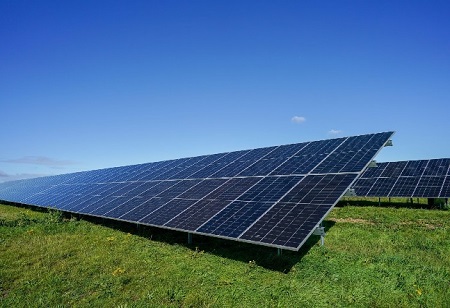
Prime Minister Narendra Modi emphasised India's climate obligations on Saturday, saying the nation had demonstrated leadership in climate action and met its goal for non-fossil installed electric capacity nine years ahead of schedule. India now intends to reach 50% installed non-fossil capacity by 2030, the Prime Minister stated in a video message at the G20 Energy Ministerial Meeting in Goa on Saturday.
"Without energy, no discussion about the future, sustainability, or growth and development is complete. At the gathering of ministers from the G20 nations, the prime minister declared, "It influences growth at all levels, from individuals to nations. He emphasised that India is among the world leaders in solar and wind energy and is working hard to promote sustainable development and an energy transition.
"India is the world's most populous country and has the largest, fastest-growing big economy, yet we are making significant progress towards meeting our climate pledges... We exceeded our goal for installed non-fossil power capacity by nine years. The goal has been raised to 50% non-fossil installed capacity by 2030, according to PM Modi. R K Singh, the Union Minister for Power and New and Renewable Energy, is presiding over the G20 Energy Ministerial conference. Ahead of schedule, India has produced 43.6% of its total energy using non-fossil fuel sources, according to Union Minister Singh, who made the announcement earlier on Friday.
The G20 countries are expected to drive a sustainable, equitable, cost-effective, inclusive, and clean energy transition, and the Prime Minister encouraged them to make sure that the Global South is not left behind. According to PM Modi, "We must ensure affordable financing for developing countries." "We need to identify solutions to close technological gaps, advance energy security, and focus on supply chain diversification. Additionally, we need to improve our cooperation on "fuels for the future," he added.
Prime Minister stated in his video message today that more than 119 million families in the nation now have access to LPG. He added, "We have also accomplished the historic milestone of bringing energy to every village. By introducing a programme for the adoption of LED lighting in 2015, we started a tiny movement that has now grown into the largest LED distribution initiative in the world. More than 45 billion energy units saved annually, the prime minister declared.
By 2030, the home electrical market in India is expected to generate 10 million dollars in sales annually, he claimed.This year, we started the introduction of petrol with 20% ethanol. By 2025, we want to cover the entire nation, he declared. The prime minister stated that India is developing a mission mode on green hydrogen as a substitute for decarbonization.
The goal, according to the PM, is to make India a hub for the production, usage, and export of green hydrogen and its derivatives. RK Singh, the Union Minister for Power and New and Renewable Energy, and Hardeep Singh, the Union Minister for Petroleum and Natural Gas, both launched new organisations after the Energy Ministerial Meeting.
The Energy Ministers from G20 member countries, nine invited countries, and senior representatives from 14 international organisations will attend the Ministerial meeting, the Power Secretary announced earlier on July 14. The 4th Energy Transition Working Group conference, which lasted two days and was held in Goa in advance of the Energy Ministerial conference, came to an end on Thursday.
We use cookies to ensure you get the best experience on our website. Read more...